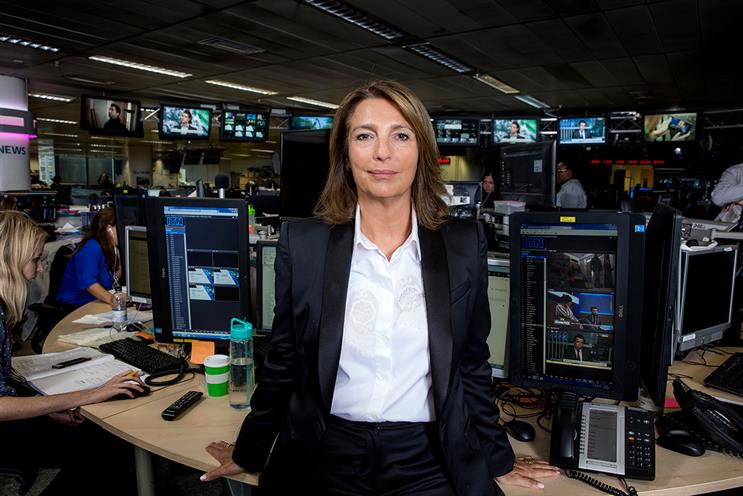
ITV has told a House of Lords committee examining the future of public-service broadcasting in the UK that it wants to "change the relationship between public service broadcaster channels and platforms" because the current set-up is threatening its ability to invest in content.
Dame Carolyn McCall, ITV's chief executive, appeared yesterday to give evidence alongside colleagues Magnus Brooke, director of policy and regulation, and Kevin Lygo, director of television.
McCall claimed: "PSBs are in a more vulnerable position than ever before. There’s a very unfair and uneven relationship between us and the platforms."
Brooke told the committee that ITV had "lost just under £1m" when Manhunt, a three-episode series that was one of its most popular shows earlier this year, was shown on Sky.
"In Sky homes, we got about 2.5 million views for that programme. We were able to monetise about half that viewing because effectively half of it was recorded and ad-skipped," Brooke said.
"The issue for us is partly about making sure we get the advertising revenue and also actually what you have on these paid-for platforms is a very, very significant volume of content now being recorded, which is actually directly competitive with our own on-demand services.
"For those two reasons, it is profoundly important to us that we do change this relationship between PSB channels and platforms, because it will have a direct impact on our ability to invest in things like drama, for everybody, for free, wherever you live in the UK."
A spokesman for Sky told 北京赛车pk10 that it "completely disagree[d]" with ITV's comments, and that it planned to provide a response to the Committee.
McCall added: "There is something unfair about us having to put our main channel on platforms for free where actually those platforms also encourage advertising to be skipped, PVR-ed, where we don’t get the money for that advertising – and yet we can’t get any compensation."
The ITV team also claimed that the future of digital terrestrial TV transmission was "under threat" and legislation was needed to oblige platforms to give prominence to PSB content in an approaching post-electronic programme guide world.
"Young people especially are not looking at EPGs," McCall said. "They’re looking at tiles [in on-demand menus]. There is a danger that PSB content will become quite invisible and significant content meant for citizens of Britain will not be seen."
The ITV Hub especially should be guaranteed prominence by platforms, Brooke said, adding that such treatment for PSB content could extend to platforms' search algorithms and voice interfaces.
McCall observed that the reason Amazon’s Alexa voice assistant serves BBC content when a user asks for the news is because of a partnership between the two organisations and not because of legislative obligation.




.jpg)
.jpeg)
